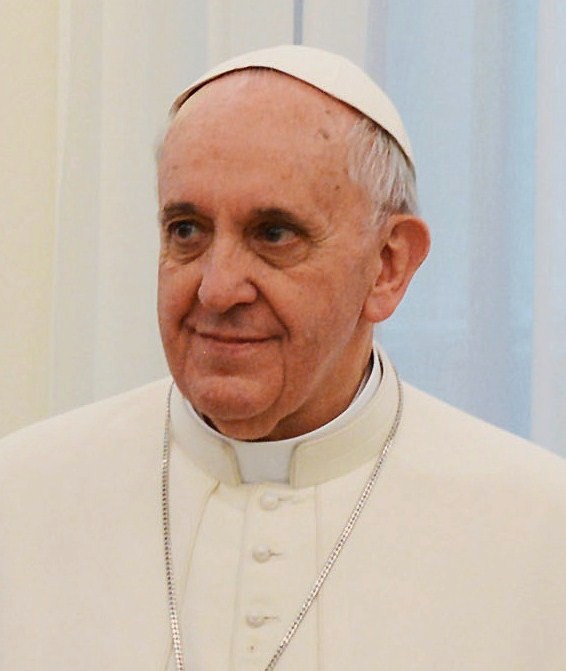 |
| Not a teacher. |
Pope Francis has declared January a month of prayer for educators. I guess I ought to be happy about this. He’s even composed a special prayer.
If I were to compose a prayer for teachers, it would be that they—we—always teach truth, and only truth, that we always think of what is best for our students, and that we have patience with them. All of these have Biblical warrants I could cite. This is also the advice of the great teachers of the past, Socrates, Plato, Confucius, St. John Bosco.
Francis’s suggested prayer mentions none of these things:
“We pray that educators may be credible witnesses, teaching fraternity rather than competition and helping the youngest and most vulnerable above all.”
This seems off the wall; scatterbrained, as all of Francis’s pronouncements seem strangely scatterbrained.
Credible? Why merely believable, or believed, and not truthful?
If there is a moral problem with competition, we should also pray that it be abolished in the world of sports. No scores should be kept, I suppose, and all games should end in a tie. Anything else teaches immorality. Can we all get behind that?
Competition is an effective educational tool: it adds interest and incentive. It informs the student of their progress. Teaching without it is simply far less effective.
Helping the youngest above all? Hardly a key concern; educators rarely have mixed ages in their classes. If they do, what is the moral value of favouring one student over another on the basis of age? This is arbitrary age discrimination.
Helping the most vulnerable? In a school or other educational context, vulnerable to what? Falling down the stairs? Being bullied? Catching COVID? Without specifying a threat, this is meaningless. Depending on the threat, it is primarily the job of a school nurse, custodian, or vice-principal, not the teacher.
From this prayer, I think we can conclude several things. First, that Pope Francis has no idea what teaching is about. Second, his worldview is not informed by Christianity. Third, he has at best a second-class intellect. Fourth, he doesn’t like to use it. He mailed this one in.
At a guess, it looks like the subtext is Marxism: competition is bad, because it might lead to free markets. There also seems to be a whiff of postmodern nihilism.
Francis’s papacy frequently sows confusion over faith and morals: failing in the primary responsibility of a pontiff. Nor does he show a pastoral touch, as might have compensated for this. Clarity is an important element of pastoral care; and beyond this, Francis’s management style tends to be gruff and autocratic, and dissent and dissatisfaction within the church has grown during his papacy. Think Archbishop Vigano, the dubia of the four cardinals, the German synod.
So what were the cardinal electors thinking when they chose him?
When he first appeared on the balcony of St. Peter’s, in a cloud of black smoke, my thought was that he looked like an accountant, not a pope. That may be it. Perhaps he was chosen for his presumed administrative abilities, to crack heads and put the Vatican’s organizational and financial house in order. It has been notoriously corrupt and dishevelled, and this was an area in which John Paul II and Benedict, in their gentleness, had failed.
Unfortunately, I see no evidence that Francis has made any headway on this. I hate to say it, but his attitude has looked more like “why beat them if you can join them?”












No comments:
Post a Comment